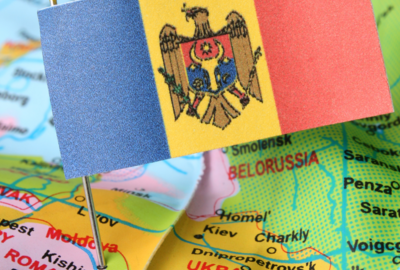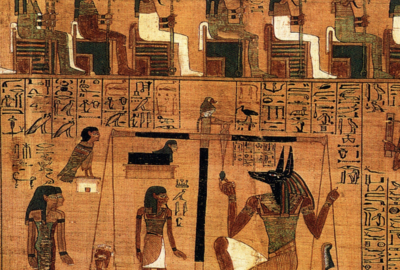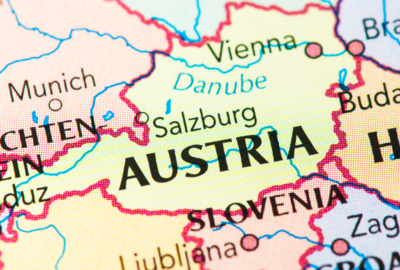
What language is spoken in Greece? Alphabets and officially spoken language

Greece: official language
The official language in Greece is Modern Standard Greek, which is a direct descendant of the Ancient Greek language. Modern Greek is the language used in official documents, politics, economy and daily life of the country. The Greek language had already been used as a language of culture and writing in the past, when Greece was divided into independent city-states, but modern Greek assumed the status of the nation's official language with the independence of Greece in 1829.
Greece was in fact under the rule of the Ottoman Empire from the 15th century to the early 19th, during which the language was replaced with Arabic and Turkish. Before that, it was the Byzantines who ruled Greece, until the fall of Constantinople in 1453. Under the Byzantine Empire, the Greek language became the official language of the Eastern Roman Empire and was used to write most of the literature and documentation officer of the time.
After achieving independence, Greece began to develop thanks to the help of other foreign powers. Over the centuries, the Greek language has taken on different characteristics but has remained the most spoken language within the country. However, Greece's linguistic diversity is a testament to its history and geographical location, as you can see in the next paragraph.
What languages are spoken in Greece?
We have seen that in Greece the main language is Greek, but despite its importance there are also other minority languages that are spoken in some parts of the country.
Albanian
Albanian is the mother tongue of an ethnic minority present in Greece, especially in the Epirus region. This minority is mainly composed of Albanian immigrants who have settled in Greece during the last decades, but there are also Albanians who have been living in Greece for generations.
Macedonian
Macedonian, on the other hand, is mostly spoken by the Slavic minority on the border with North Macedonia. During the rule of the Ottoman Empire, in fact, some groups of Macedonian Slavs settled in Greece, maintaining their language.
English
Some studies show that a large part of the Greek population knows the English language, especially in the most touristic areas and in the most important cities of the country.
Turkish
Turkish is mainly spoken in the region of Thrace, bordering Turkey, by Muslim communities. This language is also found in parts of the North Aegean region.
Online
Language courses
Learn foreign languages effectively and in the comfort of your own home with real teachers!
Get a 5% loyalty discount on your next language study trip!
Dialects
In Greece some varieties of Greek are used according to the region in which one is located, such as in ancient Greece where the Doric dialect was used in Sparta and the Attic one in Athens, or the Cappadocian and the Italiot dialect, now extinct, which they were spoken respectively in Turkey and in the area of Magna Graecia. For example, the Zaconian dialect is the typical dialect of the Arcadia area and was formed as an evolution of the Doric. On the island of Crete, however, the Cretan dialect is spoken, while in Cyprus the Cypriot dialect is spoken. Then there is the Pontic language which derives from Attic Greek and Turkish, and which is spoken on the Black Sea in the Pontus area
Greek language: alphabet and characteristics
Modern Greek has the particularity of being an inflectional language, i.e. a language in which words are declined according to certain cases and take on specific meanings based on their role within the sentence. Modern Greek declensions include four cases: the nominative, the genitive, the accusative, and the vocative. The nominative case indicates the subject of a sentence, the genitive case indicates ownership or possession, the accusative case indicates the direct object, while the vocative case is used when addressing someone or something directly.
In the Greek language, the alphabet consists of 24 letters, some of which were also used in other languages, such as the Latin alphabet, while others come from other peoples, such as the Phoenician β and the Etruscan φ. Some letters have two different pronunciations, depending on the context in which they are used, and you may have noticed that various accents (stressed accents: grave, acute, and circumflex) are used in Greek, which indicate the correct pronunciation of words.
Some letters of the Greek alphabet are pronounced as in the Italian language, such as α (a) and ε (e), while other letters such as ξ and ψ indicate characters that are not present in Italian. The υ, on the other hand, is often silent if it is at the end of a word. However, there is a convenient transliteration system for writing the letters of the Greek alphabet into a different alphabet, such as the Latin one.
Modern Greek language and Ancient Greek language
The modern Greek language differs markedly from ancient Greek. The Ancient Greek language has been spoken in Greece and other parts of the ancient world, such as Ptolemaic Egypt and the Roman Empire, from the 9th century BC. up to the 4th century AD, and was used in many literary and scientific works, as well as by the great philosophers and thinkers of that era such as Plato and Aristotle. It is an inflectional language, with words forming differently according to their role in the sentence, based on the Greek alphabet developed in the 9th century BC. about.
There are six verb tenses, which can be conjugated in the indicative, subjunctive, and optative mood. Nouns, on the other hand, are declined in the masculine, feminine and neuter genders, both in the plural and in the singular, but also in the dual. Five different cases are used, which are the nominative, the genitive, the dative, the accusative, and finally the vocative.
Modern Greek, the language spoken in Greece today, has been influenced by many other languages, including Latin, Turkish, and French. For this reason, the modern Greek vocabulary has incorporated some foreign words, while the ancient Greek was purer. Furthermore, the grammar is simpler than that of the ancient language, with fewer verbal and nominal forms (and the loss of dual gender), and the pronunciation of some words differs.
Greek: how to study the language
Have you decided to study the Modern Greek language? Then you can download an app to help you with the basics, or take a Greek language course at a language school or institute. Courses of various types are available in different destinations around the world and are taught by qualified and experienced teachers, allowing you to experience a unique adventure in a new place and together with other students from all over the world.
Studying a foreign language like Greek can be a very rewarding and challenging experience, albeit a complicated one. There are several options available to learn new languages, such as relying on us at Sprachcaffe. We find cultural immersion to be the most effective way to learn a new language, allowing you to live and work in another country for a period of time while studying native speaker pronunciation and engaging in conversation with locals on a daily basis.
Learning any language takes practice and commitment. With the right motivation and the right advice, though, you can do it relatively quickly. We advise you to take a look at the courses and programs available on our website by consulting the Sprachcaffe digital catalogue, and to send us a message using the appropriate form if you have any special requests or simply doubts to clarify. We are waiting for you!








